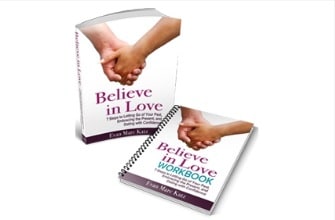The Significance of the Six-Month Milestone

- Dating
Here you are at your Half-a-Versary! Six months is an important benchmark in a relationship. While you don’t have to be a chemist to understand the trajectory of relationships, it can help. During the first few months of dating, your brain (and his) are being flooded with chemicals that can cast your partner and your future together in a rosy light.
Oxytocin, dopamine, and serotonin are the holy triumvirate of bonding, feel-good hormones. That extra energy you felt? Your sunny optimism? Simply gazing at your partner and welling up? Most likely the result of hormonal shifts during this honeymoon phase. It’s glorious, it can literally make you feel “love-sick,” and it can be responsible for a fair number of poor decisions.
But by six months of dating, your head is a little clearer, and you’re approaching your relationship with more sobriety after the love-drunk stage. Life needs attending to. The work, friends, family, laundry, and housecleaning you’ve been neglecting in favor of candlelight and roses are still there. You may be starting to balance things a little more toward normalcy.
Key Takeaways:
- The inevitable dip in a relationship doesn’t mean the love is gone – it’s a sign that you’re moving into a mature, committed relationship.
- Identify the signs and recognize where your relationship is going after the six-month mark.
- Know what actions to take if you’ve been dating for six months but still not “official.”
INDEX
- The Inevitable Dip
- Moving Toward Commitment
- What should you already know about each other?
- What if We’re Six Months in and Not “Official”?
- If You ARE Official, Celebrate a Little!
The Inevitable Dip
After those heady first days, moving toward a more normal work-life balance may feel disappointing. The grand gestures may have diminished. The phone chats into the wee hours are mostly gone. You may have had your first argument…or said your first “I love you”s. But in a healthy relationship, you’re now on the right path to a new phase. Spending time with friends or even alone time may have felt wrong in those first heady weeks, but now it may seem like essential maintenance. Applying yourself with renewed vigor to your job can be seen in the context of working toward building something together.
A serious relationship isn’t going to have the same kind of all-consuming and insular feel that it had in the infatuation stage. But that’s not a bad thing. It’s a healthy thing. In a famous film quote, a man is told that he’s different than he was early on in the relationship. His answer? “You can’t expect me to keep up that level of charm, I’d have a heart attack!”
One of the important things to remember is that this stage is essential to moving forward. Some people who have not yet reached a certain level of maturity give up at this point. They feel like if there aren’t the constant fireworks of the initial stage honeymoon period, they’re no longer in love. But this isn’t at all the case. Rather, it’s the sign of a relationship that’s moving into a mature, committed relationship between adults. Establishing a meaningful connection will take you far beyond the initial sparks.
Moving Toward Commitment
At the six-month milestone, you should have a pretty good idea of whether this is going to become a long-term relationship. That’s not to say that either of you has necessarily voiced a commitment. But if not, why not? Is he, or are you, one of the commitment-phobes we’ve heard about? While it’s not necessarily a deal-breaker if there hasn’t been a declaration of a future, it could be a major sign that this relationship isn’t moving forward.
Most couples, by the six-month mark, have at least talked about or delivered on some of the following things:
Exclusivity
By this point, you and he should have at least had a conversation about whether you want to be exclusive or still see other people. (Actually, you should be officially boyfriend/girlfriend within a couple of months). The point is that you are both on the same page about how you see things progressing in the future. Even some married couples decide to have open relationships. If this isn’t what you want, though, it should be made clear by now. Too many people avoid the conversation, hoping that things will magically turn out fine. Or they simply take for granted that someone else thinks exactly the way they do.
If one of you wants to be a monogamous couple and the other doesn’t, six months is plenty of time in which to have discovered that, and an even better time to move on if your goals aren’t synced up.
Cohabitation
Again, while not being ready to live together isn’t a deal breaker, broaching the subject is a good sign that you’re really emotionally invested in one another. Plenty of successful relationships occur between people who are not cohabitating. A long-distance relationship can even be viable as long as both people are communicating about what they want.
If you haven’t even been to each other’s homes, that’s a big red flag that either he or you is avoiding intimacy and fuller life integration. It could be that it’s simply a matter of not wanting him to know you’re a borderline hoarder. He could be embarrassed by a small apartment or a roommate situation. Or, this could be an indicator that he’s actually already in a relationship with someone else. Either way, by the six-month point, you should know a little more about one another and your living situation at the very least.
Friends and Family
By this point in the relationship, you should have met at least someone who is important to him (and vice versa). Maybe it’s just a matter of attending an event where he might know people. Or maybe he’s actively introduced you to family members. Or you’ve had a double date with friends of yours. These are all strong indicators that you have confidence in your relationship and that you’re proud of this person you’ve been seeing.
If he’s reluctant to share you with the rest of his world, there are questions you may need to ask. Is he embarrassed by you? Is he already involved with someone that his friends or family may know about? Is there something that his close relationships know that you don’t?
And if it’s you who are the one balking at introducing him, you can ask yourself some of those same questions. Are you worried that your friends and family may judge him unfavorably? Are you subconsciously not that sure that this relationship will last much longer? If you’re unwilling to share him with your inner circle, that may be very telling about what you really think about him.
Managing Conflict
At his point in the relationship, you’ve probably experienced at least some minor conflict. The point is not to avoid conflict or to think that conflict means that the relationship is not going well. Much more important is how each of you handles conflict. When you disagree, do you respect and listen to one another? Do you make room for another opinion? Are you more focused on winning, or on finding a solution to the problem?
A strong relationship creates a safe space for conflict. Everything that happens will be seen from the perspective of “us” rather than “me vs. him/her.” Argument styles that are toxic come from a power struggle in which one person is the winner, and the other is the loser. When couples can’t find common ground or speak to each other kindly, even during disagreements, both end up losing. And if you’re constantly bickering about the same issues, that isn’t a great harbinger of things to come.
While the initial stages of a relationship may point out obvious deal breakers, by now, you’ve probably discovered those. Now it’s more a matter of fine-tuning. Having the courage to be transparent with the things that bother you is an important ingredient in moving a relationship forward. Similarly, his willingness and skill in communicating his differences with you are good indicators of future success.
What should you already know about each other?
If you’re being authentic with one another and invested in the future of the relationship, you’ve probably observed or revealed certain things. In a viable relationship, you’re both honest about likes and dislikes, what’s important or inspiring to you, what events have shaped you, and what your future plans might look like.
Intimate Information
Sharing personal information – family issues, successes and failures, core values – is a way of making ourselves vulnerable to another person. Without that vulnerability, there isn’t much room for true intimacy to develop. Similarly, if he is really interested in you, he’s going to be observing what lights you up, what makes you sad or mad, how you recharge, all the little things that make you, you.
People differ greatly in how much information they are willing to reveal about themselves. It’s not at all unusual for one of you to be more forthcoming than the other. But it’s good to have some balance. Both of you should be curious about one another and feel safe enough after six months to have bared a piece of your soul.
Physical Compatibility
If one of you has communicated that you’re not ready for sex, it says a lot if your partner respects that and considers it something worth waiting for. That’s one kind of compatibility. On the other hand, if one of you is a touchy-feely type who loves physical affection and the other is barely able to hold hands, it’s not a good sign for future happiness. While there are many things you can get elsewhere, sex is usually restricted to within the relationship so it’s an important ingredient to get right.
If you have begun a sexual relationship, there are bound to be some initial adjustments with a new partner. But after 6 months of dating, you should at least be able to communicate what’s working and what might need some attention. Your styles should mesh well, from how sex is initiated to what really satisfies each of you.
Vision of the Future
If you’re discussing the future with one another, it’s a good sign. Future plans can be voiced by both of you. It’s then up to each of you to see how aligned those might be with your own vision. If they’re different, it’s possible that you can compromise on the original vision. But if you can’t – if you want children and he doesn’t – then that’s a deal breaker that you have to act upon right away.
Everyone has dreams and goals. The important thing is how well you are able to blend those plans to accommodate one another’s presence. If each of you is fixated on a particular set of circumstances and has no flexibility, this can spell disaster for a future together. If you’re able, however, to see how your futures might be compatible or at least adjustable, this is a good sign for other kinds of negotiations and compromises.
What if We’re Six Months in and Not “Official”?
Six months of dating probably represents the make-it-or-break-it point. One of three things should have happened:
1) You have mutually decided that you are not only in love, but you also see each other together and exclusive in the not-hugely-distant future. You have declared yourself official in some way (calling each other “girlfriend/boyfriend”, being monogamous, moving in, etc.). You’ve told one another and likely others as well.
2) One or both of you have decided that you are fundamentally not that compatible and should seek a relationship elsewhere. You prefer not to continue dating one another.
3) You have mutually agreed to a casual relationship without commitment. You may have each other’s explicit permission to see others. You might continue to date until you find someone more interesting or have a change of heart about a committed relationship with this person.
The important shared ingredient here is communication. If you’ve been dating for 6 months and not official, it’s probably time to end things.
Making a relationship official can seem like a big deal. People are often commitmentphobes for a reason. Maybe they’ve had terrible previous relationships that have traumatized them. Maybe their family history is full of cautionary tales. Casual dating may be the most they can do without therapy that focuses on relationship advice. It’s important to know if the man you’re seeing has these issues, and it’s important to tell him if you do.
In the long run, the most fulfilling relationship is going to be based on quality time spent with a real person. It’s one thing to fall in love. If you’re going to spend your life with someone you need to be able to talk and reach decisions, make compromises, and plan goals. You need a good understanding of exactly who this person is and how you are in relation to him. After six months, you probably have a pretty good idea. Trust yourself and act accordingly.
If You ARE Official, Celebrate a Little!
Don’t be afraid to be a little silly or sentimental. The six-month mark is significant, especially if you’ve already made some declarations. Having a six-month anniversary celebration, maybe revisiting where you had your first date, taking a road trip, or getting a cute present (a key to his place? his & her toiletry bags? matching hats?) Who knows, in six more months, it could be your real first anniversary!










Comments